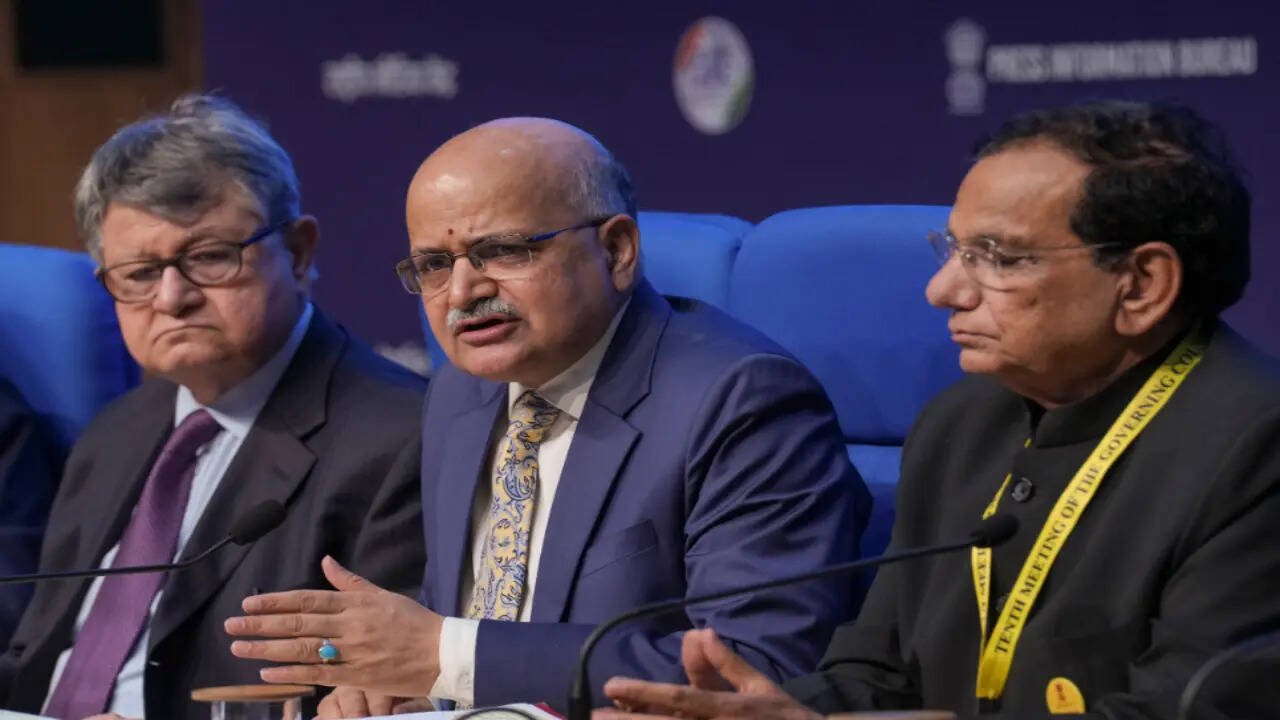
NITI Aayog CEO BVR Subrahmanyam and Vice Chairperson Suman Bery during a press briefing on NITI Council meeting, in New Delhi, Saturday, May 24, 2025. (PTI Photo/Kamal Singh)
“It is only the US, China and Germany which are larger than India, and if we stick to what is being planned and what is being thought through, in 2.5-3 years, we would become the third largest economy,” Subrahmanyam added.
Until 2024, India held the fifth spot in the global economy rankings. The IMF’s April World Economic Outlook report projected India’s gross domestic product (GDP) at $4.19 trillion in 2025, slightly ahead of Japan’s.
According to IMF data, India’s per capita income has more than doubled in the past decade, rising from $1,438 in 2013-14 to $2,880 in 2025.
The IMF expects India’s economy to grow at 6.2% in 2025-26, slightly below its previous forecast of 6.5%, citing global uncertainties and rising trade tensions. Despite the revision, India remains among the fastest-growing major economies, with growth supported by strong private consumption, particularly in rural areas.
In contrast, the global economy is projected to grow at just 2.8% in 2025 and 3% in 2026.
To reach that target, the document identifies six key building blocks: macro-economic goals and strategy; empowered citizens; a thriving and sustainable economy; technology and innovation leadership; global leadership; and enabling governance, security, and justice systems.